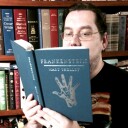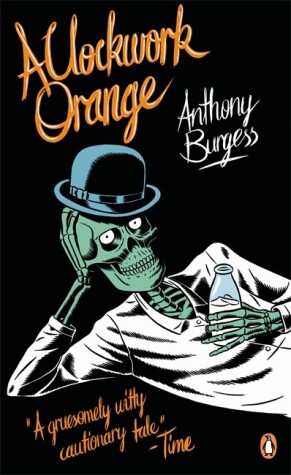
The daring dystopian satire that inspired one of the most notorious films ever made, beautifully reimagined as part of the Penguin Essentials series
'Every generation should discover this book' Time Out
________________
In this nightmare vision of youth in revolt, fifteen-year-old Alex and his friends set out on a diabolical orgy of robbery, rape, torture and murder. Alex is jailed for his teenage delinquency and the State tries to reform him - but at what cost?
Experiment of language? Social prophecy? Black comedy? A Clockwork Orange is all of these.
Dazzling and transgressive, this frightening fable about good and evil asks the meaning of human freedom.
________________
'A gruesomely witty cautionary tale' Time
'Not only about man's violent nature and his capacity to choose between good and evil. It is about the excitements and intoxicating effects of language' Daily Telegraph
'I do not know of any other writer who has done as much with language . . . a very funny book' William S. Burroughs
'One of the cleverest and most original writers of his generation' The Times
- ISBN10 0241951445
- ISBN13 9780241951446
- Publish Date 7 April 2011 (first published December 1962)
- Publish Status Active
- Publish Country GB
- Imprint Penguin Books Ltd
- Format Paperback (US Mass Market)
- Pages 144
- Language English
- URL https://penguinrandomhouse.ca/books/isbn/9780241951446
Reviews


clementine
I got pretty frustrated and angry partway through when Alex and his droogs rape the woman in the cottage - I just didn't understand why I was reading a book narrated by such a sick, disgusting person. However, I persevered, and ended up sympathizing with Alex to a certain degree. I love books like this because I love having my ideas of good and evil (and other binary oppositions) challenged. I loved the exploration of morality and free will. Of course I didn't actually like Alex by the end of it, but my feelings for him were much more complicated than they were initially. I still absolutely disagree with him that he has paid for his violent crimes, because despite his concessions in the final chapter he doesn't seem to feel any true remorse for his actions - rather, it seems that he's outgrown his rebellious teenage days. He's definitely not a likeable narrator, but he's more complicated than I thought he would be and his experience with the Ludovico Technique made me feel some sort of strange sympathy for him.
As I said, I was at first really nervous about Nadsat, since there are certain passages that are so saturated with it, but I ended up loving the various forms of language that were explored in A Clockwork Orange. Nadsat, the heavily Russian-based slang language used by Alex and the other teenagers, was really neat, and it was presented in such a way that it was really easy to pick up on quickly. It was cleverly constructed and cleverly integrated. I also enjoyed Alex's almost Shakespearean style of speaking - the language of this society was absolutely fascinating.
I will definitely say that while I didn't have a huge problem with the final chapter, it does make more sense to me to leave it out. The whole book would have had a really neat 1984-like arc, except instead of going from submissive/oppressed/obedient to rebel back to submissive/oppressed/obedient it would have gone from rebel to submissive/oppressed/obedient back to rebel. I noticed that parallel structure as I was reading and I was a little disappointed when the ending ruined that. The ending also isn't totally believable, but I didn't find it awful by any means.
I would be interested in finding out more about the society that we get glimpses of; the whole thing is so local, so much inside of Alex's head, that it's hard to get a good picture - or any picture, really - of the society. We know very few things about it, and while I don't think the book lacks because of that, I love dystopian and I would be very interested to know more about it.
This is another book that I need more time to re-read and digest. There's a lot going on and there are so many complicated issues and themes brought up. I thoroughly enjoyed it the first time around, but I do feel like I could get more out of it with a few subsequent readings.

Michael @ Knowledge Lost
Alex and his friends are a typical bunch; of what I would expect from an English gang. They had their own language, which sometimes was difficult to understand (example: droog = friend, golova = head, Bog = God and khorosho = Good). Alex is a really disturbed man, and watching him change through experimental behaviour-modification treatment is a real eye opener. Having reading One Flew Over the Cuckoo’s Nest recently the two books seem to have similarities. I believe both came out about the same time (1962) and might be a reflection of the time, but the topic of behaviour and mental health seem to go hand in hand.
Without giving anything away, this novel is a dark and really interesting book, I can imagine many people have spent a lot of time analysing the themes and characters in this book. While I can’t get past the similarities in style and concept between this book and One Flew Over the Cuckoo’s Nest (I wonder if I’m alone in this opinion) I hope to come back to this book again for a re-read. There is a lot in this book and can’t wait to go though the book again and pick it apart. To use a phrase from this book (I'm sure many people do the same); this book is a real horrorshow.
